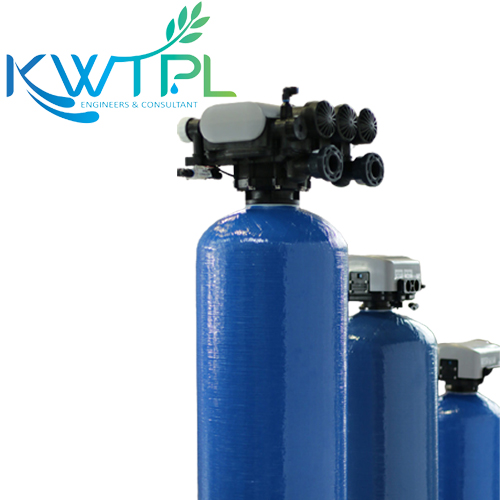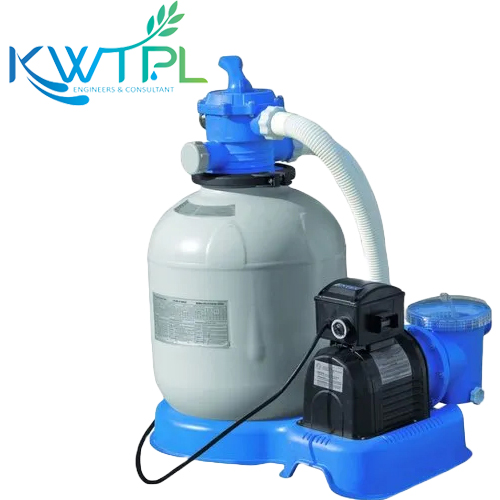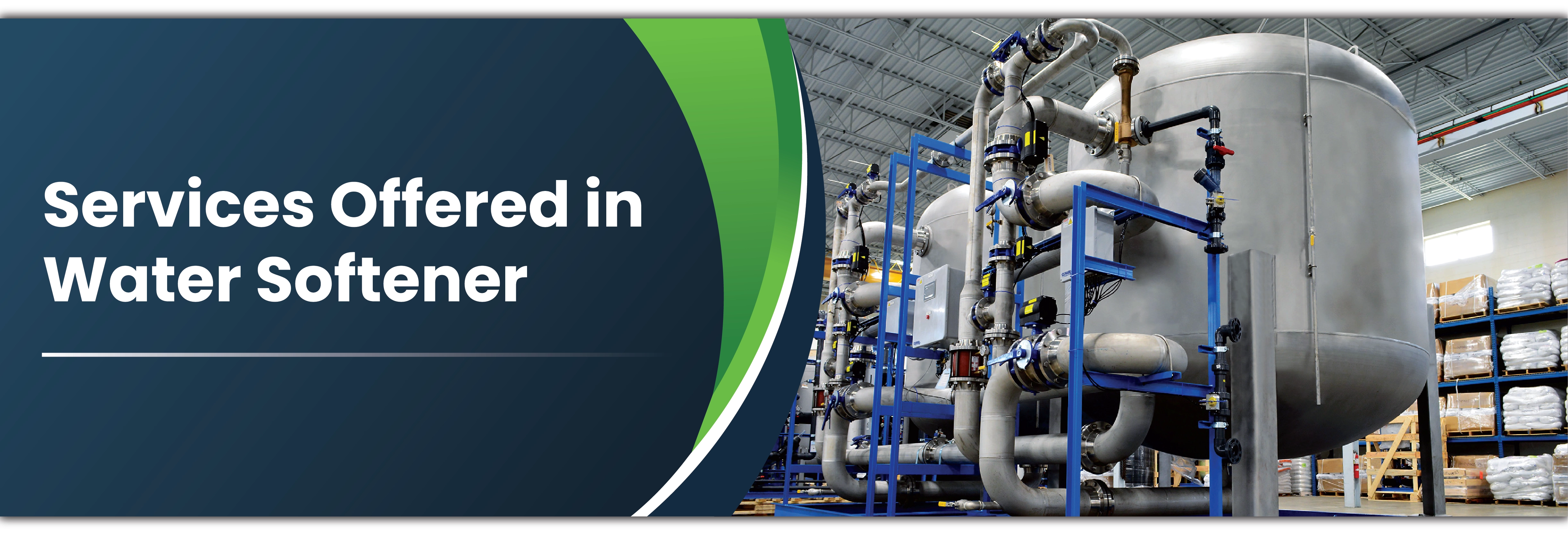Water Softener Plant
Water softener use resin beads to remove calcium and magnesium from hard water, periodically self-clean through an important process called regeneration, and also remove some metal cations from hard water. Basically, to choose between Kelvin Water Technologies has taken step for processing the hard water and makes it usable. Hard water consists of excess quantity of calcium and magnesium which is highly dissolved in water but not suitable for drinking purpose. In fact, hard water may create many problems:-
-
Decrease the water flow rate
-
Increased electricity cost while heating or boiling
-
Washing is not performed in better way
-
Leave white stain on the glass surface
-
Highly indigestive
-
Not suitable for skin
Softening of water is processed through the ion exchange and precipitation methods. This process rely on removing mainly two minerals i.e., calcium and magnesium with the flow of sodium. In this process, two separate tanks are associated with a pipe. These two separate tanks denote the brine tank and mineral tank. Mineral tanks consist of raw water containing minerals where as brine consists of the sodium chloride and both tanks are connected with a tube or pipe. As the process started, surface of vessels contains the calcium and magnesium which is flushed through the flow of sodium (salt) which is perfect and powerful solution for the minerals.
Basically two types of softeners are present to purify the hard water
-
Chemicals based softeners which is usually used in laundries to wash clothes by removing the magnesium and calcium but this water is not fit for drinking.
-
Packaged water softeners are of two types – precipitating softeners such as washing soda and borax which react upon the calcium and magnesium and improves the cleaning efficiency, whereas in non-precipitating softeners, phosphates are used for removing the minerals to great extent.
Water Softening Advantages
-
Easy to install and operate
-
Environment friendly
-
Cost effective
-
User friendly
-
High quality water
This kind of soften water is used for many purposes such as, washing, air conditioner, boiler feed, ice plant, food processing, pharmaceuticals, automobile, etc.
Kelvin Water Technologies helps to soften the hard water through the proper process which is efficient way or reducing the hardness of water. These water softener plants are not much heavy and so they are movable from one place to another.
Features and Applications of Water Softening Plant
| Features and Specifications | Applications |
|---|---|
| User Friendly | Beverage Production |
| Increases the efficiency of appliances and the plumbing system | Air Conditioning Plant |
| Less power consumption | Chemical and Textiles |
| Automatic Regeneration | Pharmaceuticals industry, Process industry |
| Long life and durable | Boiler feed, Product finishing |
| Best quality of material and resin | Laboratory, Dying Process |
| Easy to install plant | Hospital, Hotels, Laundries etc |
| Easy to maintain (low maintenance cost) | Cooling Tower |
| Compact model | Water Power Plant, Ice Plant |
| Require less space | Food Processing |
| FRP/MS/SS pressure vessels | Swimming Pools |
Water Softening Plant Maintenance
Water Softening is processed through the ion exchange and precipitation methods. This process rely on removing mainly two minerals i.e., calcium and magnesium with the flow of sodium. In this process, two separate tanks are associated with a pipe. These two separate tanks denote the brine tank and mineral tank. Mineral tanks consist of raw water containing minerals where as brine consists of the sodium chloride and both tanks are connected with a tube or pipe. As the process started, surface of vessels contains the calcium and magnesium which is flushed through the flow of sodium (salt) which is perfect and powerful solution for the minerals.

Water Softening Plant Services
Water Softeners are of two types – precipitating softeners such as washing soda and borax which react upon the calcium and magnesium and improves the cleaning efficiency, whereas in non-precipitating softeners, phosphates are used for removing the minerals to great extent.

FAQs – Water Softener
Q1. What is water softening plant?
Ans. A water softener reduces the dissolved calcium, magnesium, and to some degree manganese and ferrous iron ion concentration in hard water. These “hardness ions” cause three major kinds of undesired effects.
Q2. What is the principle of water softener?
Ans. A water softener works by removing the magnesium and calcium in your water supply through an ion exchange process, converting it from hard water to softened water.
Q3. What is water softener made of?
Ans. Water softener crystals, pellets, and cubes are all made from salt (sodium chloride. The distinction is due to how the salt is produced. Evaporating salt water in shallow outdoor ponds produces crystals. The water evaporates because of the sun and wind, leaving behind a layer of natural salt crystals.
Q4. What is the purpose of a water softening plant?
Ans. Water softening is an important technique for reducing water hardness in homes and businesses. Hard water can clog pipes and cause soap to dissolve more slowly. Water softening can help to mitigate these negative effects. Softeners remove most of the calcium (Ca2+) and magnesium (Mg2+) ions. Hardness minerals are calcium and magnesium. Softeners are sometimes used to remove iron. Water softening devices can remove up to five milligrams of dissolved iron per litre (5 mg/L) from the water.
Q5. Which is the best water softening method?
Ans. Ion-exchange resin or reverse osmosis are the most used methods for removing water hardness. Other approaches include precipitation methods and chelating agent sequestration.
Q6. What are the benefits of Water Softener?
Ans
- Reduced hand and body aches are another benefit of water softening.
- Helps to save money on soap purchases. Hard water reduces laundry efficiency. As a result, a large amount of soap is required to create a lather.
- Assists in restoring the lustre of the water.
- Because soap lathers quickly with water, less water will be used.
- Equipment will last longer because it will not corrode as quickly.
- Some compounds found in hard water can have a significant impact on human and animal health. Once the water has been softened, both humans and animals will be safe.
Q7. What are the disadvantages of Water Softener?
Ans










